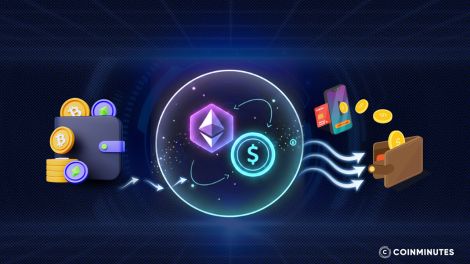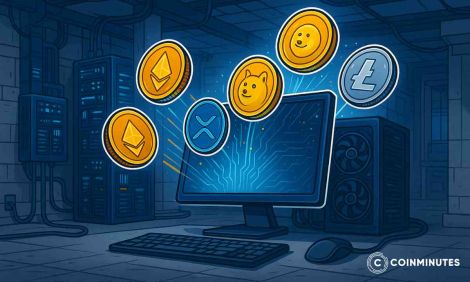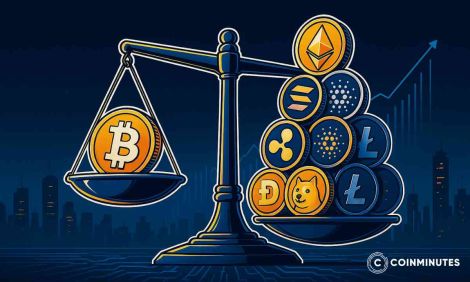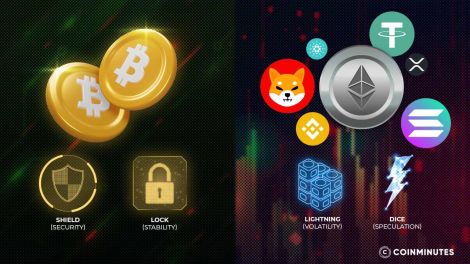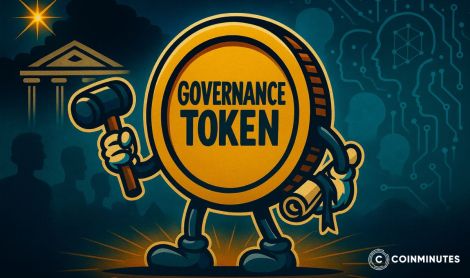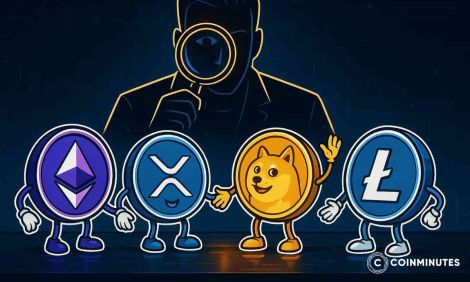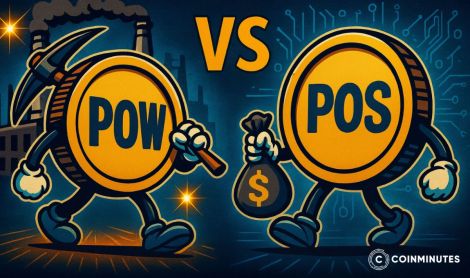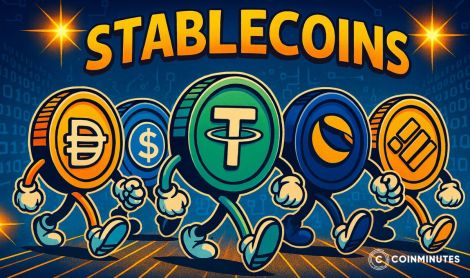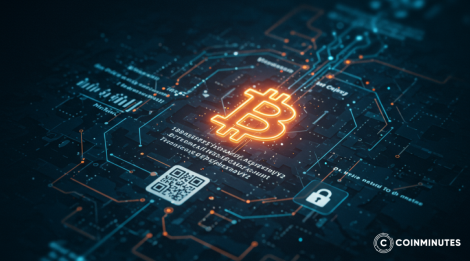Inside Bitcoin: Secrets of the Cryptocurrency That Dominates the Market
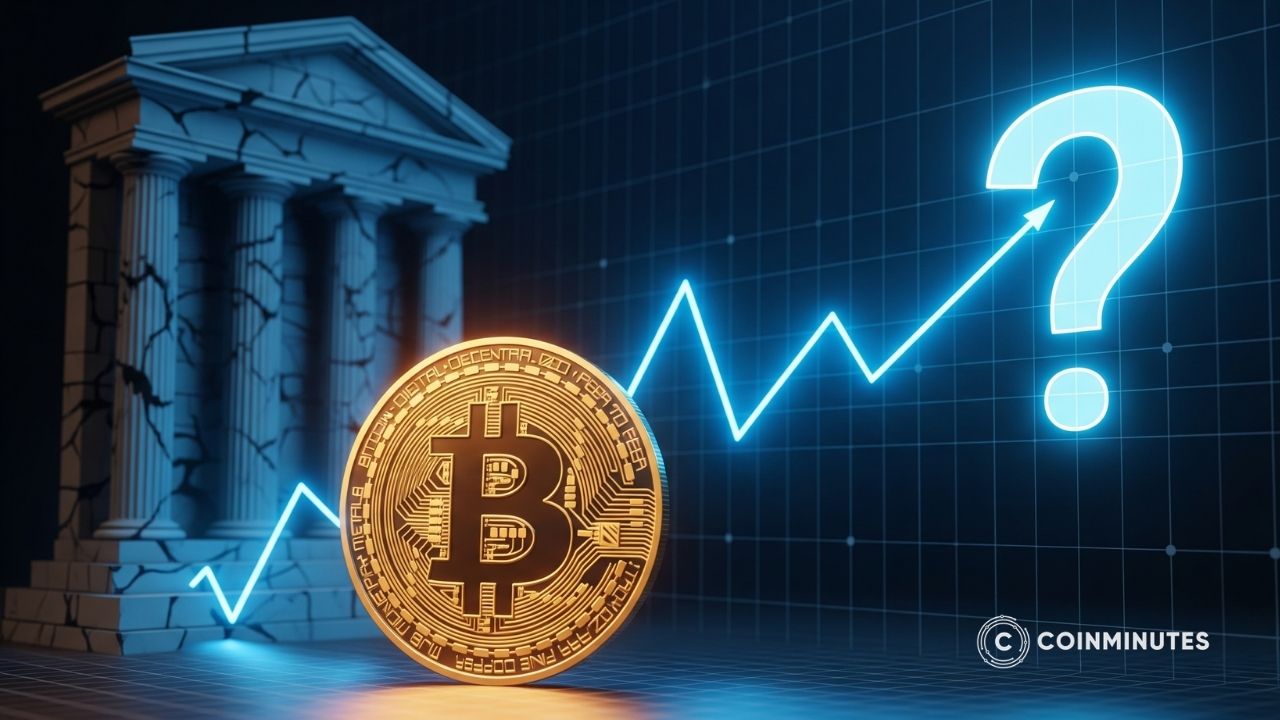
Imagine handing over a hundred dollars for something hardly anyone saw back then. Today that small move sits at over nine million. Gold cannot touch it. Real estate does not come close. Not even the big names on Wall Street match up. A single choice, years ago, shifts meaning now. Time bends value in strange ways.
Will Bitcoin keep climbing past 2026 or has the chance already passed?
Bitcoin Basics: What You Should Know
A wave of chaos followed the 2008 crash - my aunt lost her home despite never missing a payment; the company managing her mortgage simply vanished. From that chaos came Bitcoin, crafted by a person named Satoshi Nakamoto, tired of systems breaking lives. It offered something new: transferring money online without needing any bank at all.
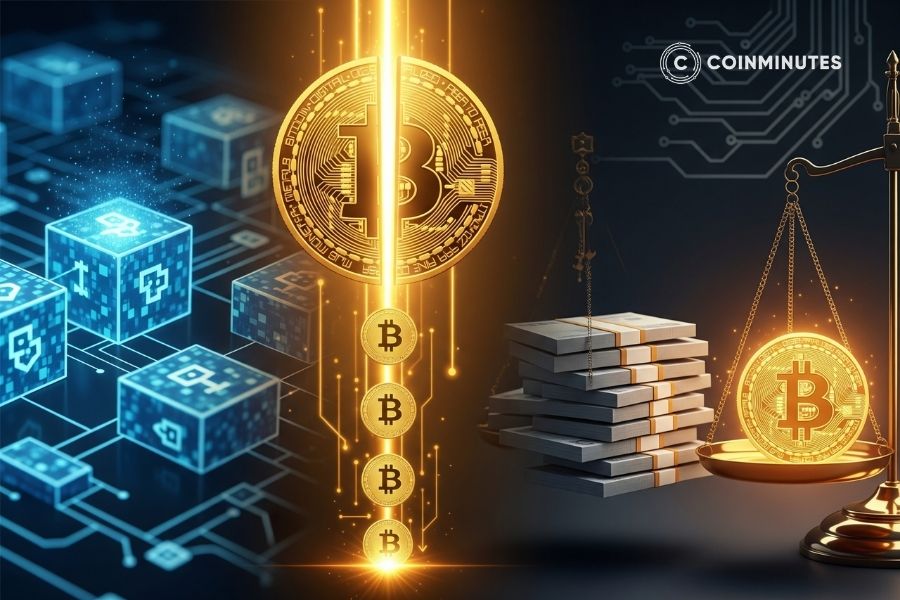
Shared ledger, math puzzles, and money revolution
Blockchain Technology Behind Bitcoin
Picture a notebook everyone can write in, passed around among countless machines. Funny thing happens when you dig into what makes digital ledgers tick - computers must solve math puzzles before saying a deal is settled.
Let me skip the long talk about Merkle trees and similar tech and tell you straight what matters: when data hits the blockchain, it stays there for good.
Bitcoin Halving Limits Supply To Influence Value
Halfway through every 210,000-block stretch, the prize for mining Bitcoin gets sliced in half. That reset happens like clockwork, roughly once every four years.
Began in May 2020, the halving sliced miner rewards from 12.5 to 6.25 Bitcoin per block. Come April 2024, a further reduction hit - now only 3.125 awarded. Each occurrence slows new supply entering the market.
Getting Bitcoin Through Purchase, Mining or as a Payment
Finding Bitcoin today feels simple, yet back then? Total mess.
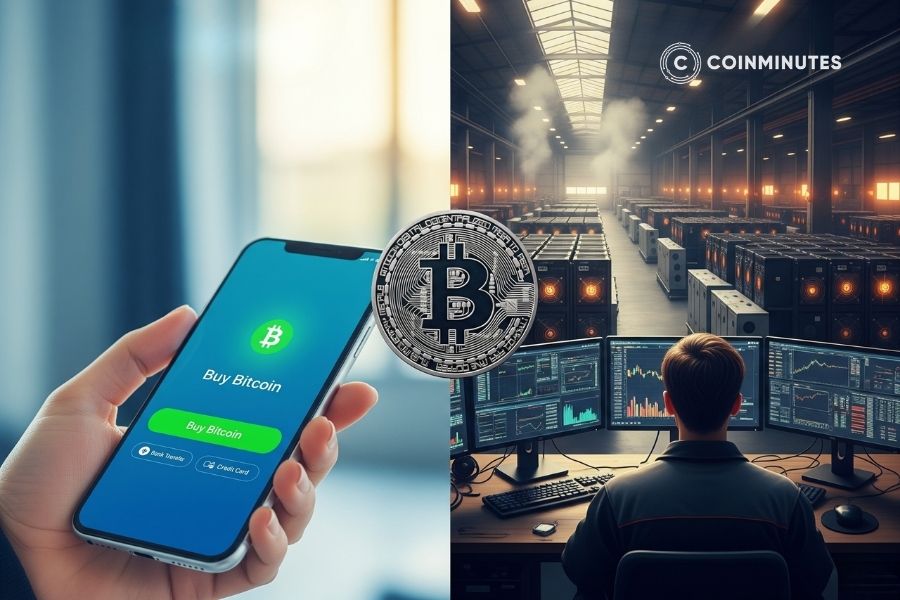
Different paths to Bitcoin ownership
Buying Bitcoin Through Online Exchanges
Fumbling at first, I ended up using the same crypto trading sites nearly everyone tries. Crypto exchanges work like online stores for buying or selling Bitcoin. Simple setup.
Finding Coinbase took time, yet the real headache started after. Verification dragged on - my license photo bounced twice over “bad light,” even though it looked okay. A fresh shot had to happen, snapped inside the bathroom just to meet their glow standards. Seven days crawled by before approval came through, right as Bitcoin surged fifteen percent. That delay still stings.
Funding your account comes next after signing up. A bank transfer was my starting move, given the smaller fees - though honestly, it dragged on forever. Five full days passed before that first deposit went through. I then shifted to using a credit card just to act faster. Yes, it tacked on 3.5% more in charges, yet I grabbed the chance instead of waiting around.
You have two main options for buying Bitcoin. One path lets you grab Bitcoin right now at today’s rate, called a "market order". Another allows you to set a price you prefer, hoping the numbers sink down to touch it, known as a "limit order".
Thinking About Bitcoin Mining?
Before jumping into Bitcoin mining, take a long pause. If your electricity isn’t close to zero cost, the math may not add up.
Last time I visited, my friend Dave had turned an old apple warehouse outside Wenatchee into something else entirely - row after row of humming machines filled the space. Bills pile up fast because the power never stops flowing. As for noise, think standing beside a jet engine that won’t quit. Step in with damp clothes, and heat hits so quick your skin tingles by the third stride.
Bitcoin Storage Choices
Once you buy Bitcoin, where to keep it matters more than expected. My starting point was Coinbase - convenient, familiar. Looking back, that choice exposed me to risks I didn’t see at the time.
People moving Bitcoin tend to choose one of two ways to keep it safe:
Always linked to the internet, hot wallets stay active online. Yet convenience trades off with risk. On my mobile I keep Trust Wallet, but only for small amounts ready to spend fast. It works like loose coins in your pocket - handy, though not where you store real value.
Cold storage just means keeping Bitcoin somewhere that isn’t connected to the internet. Back when Cryptopia got hacked in 2019, my heart wouldn’t stop pounding. After that moment, I finally bought a Ledger - no more waiting.
A small thing, shaped like a flash drive. Frustration crept in while setting it up - typing every single word of the recovery phrase, one by one. Double-checking each entry. Triple-checking some. A test restoration followed, simply to confirm everything held together.
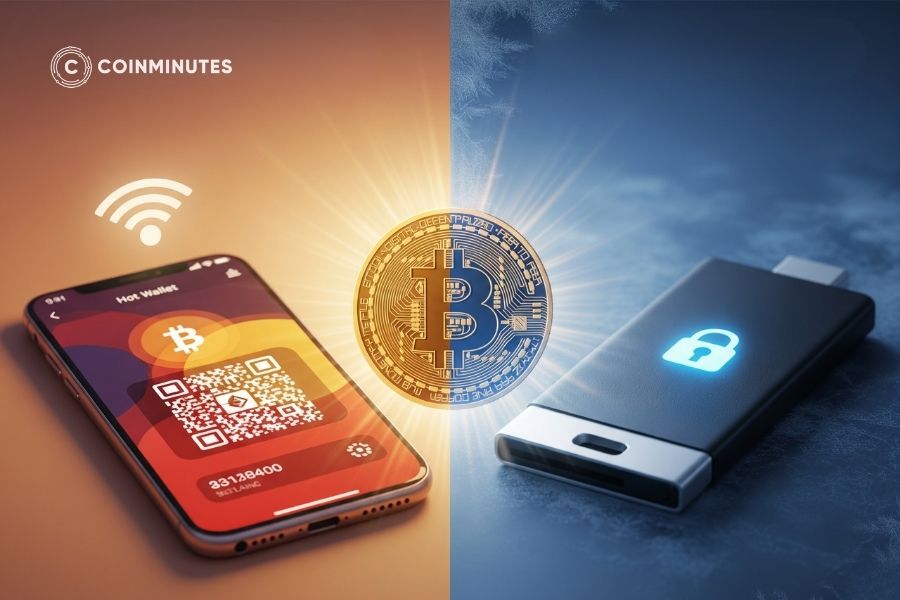
Hot wallet for speed, cold wallet for safety
The Value Question: Why Bitcoin Has Worth?
What gives digital Bitcoin value? Scarcity plays a part. Trust matters too. The power of its user network adds weight. Together, these pieces form the foundation.
True Rarity in an Age of Endless Copies
A fixed rule stands: just twenty one million Bitcoins may ever be made. Altering this figure? Impossible. The limit was set long ago, baked into the system’s first design.
Useful things that stay rare tend to keep their worth. For thousands of years, gold stayed prized mostly due to its natural limits. Scarcity never touched digital stuff until Bitcoin changed the game.
Fixes Real Issues People Face
When the Venezuelan Bolívar crumbled under reckless choices from Caracas, a different kind of ledger stood ready across screens and phones. Not everyone trusts banks that vanish overnight; for them, moving value without borders began to make sense. In places where cash loses strength quickly, has high fees, or with limited banking access, people found what works - Bitcoin fits right there.
Nearly 1.4 billion adults globally live completely cut off from banking systems. Picture this instead - grab a phone, connect to the web, then watch solutions unfold that traditional banks never brought within reach.
No Single Point of Failure
What stands out at once is how strange it feels, a system without someone in charge - yes, I thought that myself. Still, the real power hides right there. When banks cracked under their own weight, peace arrived knowing some of my savings stayed outside their reach.
Bitcoin Investments: Balancing Growth and Fluctuation
Bitcoin has made some people rich, yet erased others’ wealth. Instead of just pushing stocks, property, or bonds like they used to, more financial advisors now suggest adding a small amount of Bitcoin too.
What Makes Bitcoin Unique as an Investment
Beyond just a label, some experts compare Bitcoin to digital gold - not only due to its scarcity but also because it resists decay over time.
Store of value
Only so many Bitcoins will ever exist, unlike cash made by central banks. As new bills flooded the system in tough times, regular currency bought less. Scarcity built into Bitcoin might help it hold value longer.
Moves independently
Falling at first when stock markets tumbled in March 2020, Bitcoin soon moved on its own. While equities struggled, it carved a separate route upward. That shift shows how it doesn’t always mirror older financial systems. Holding it might bring a different kind of balance to what you invest in.
Highly divisible
A small sum can still mean entry, thanks to tiny units inside each coin. These bits go by the name satoshis - linked to Bitcoin’s origin story. One whole Bitcoin holds one hundred million of them.
Bitcoin Compared To Other Investments
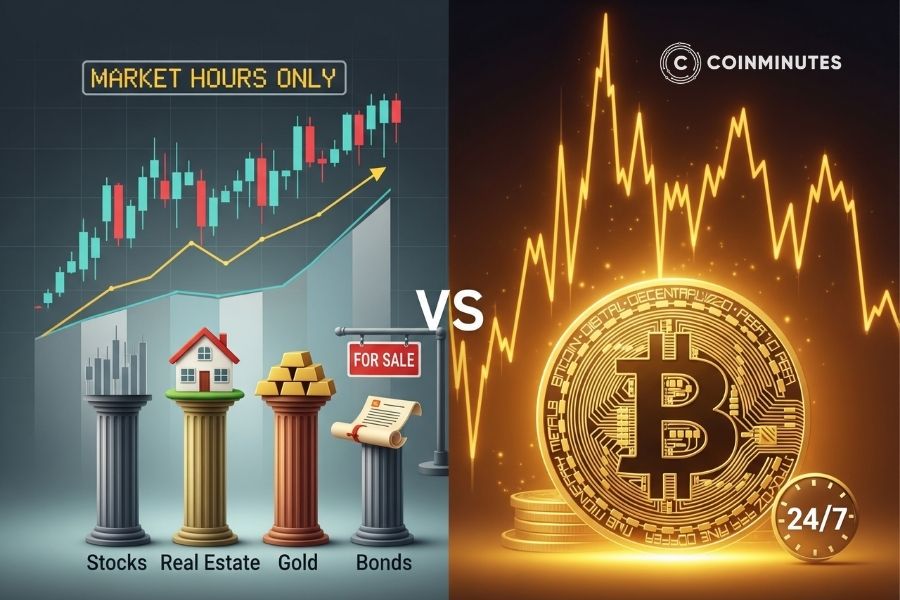
How Bitcoin compares traditional investments
Bitcoin makes all of them look boring in terms of volatility. One terrible afternoon, it can plunge by over 20 percent. On their gloomiest days, stocks drift lower by two or three points. The building I rent out? Its price hardly budges from one month to the next.
Returns are where Bitcoin stands apart. No other asset comes near its highs. Some of my top stock choices - mainly steady index funds - climb about 12 to 15 percent when things go well. Bitcoin, though, jumped 1,300% in 2017 - yet that surge only came second, following its earlier explosion into public attention when it soared 6,600% in 2013.
Selling Bitcoin? Done in seconds, any time. Houses take weeks, sometimes months - good luck moving one overnight. Stock markets close; you wait. Gold moves slow too, despite what they say.
Risk plays a part. Bitcoin feels like uncharted territory when set beside bonds or certificates of deposit. That cash you might require soon? Better left out of it. Still, clinging only to dollars carries danger now too.
Investment Approaches for Varying Risk Tolerance
Depending on your comfort with risk, here is one way that fits different cautious types.
Dollar Cost Averaging (My Personal Favorite)
Most days, timing the market feels impossible - so I skip it entirely. Every few weeks, without checking charts, a set amount moves into Bitcoin. Price highs? It happens anyway. Lows? Still goes through. Routine beats prediction now. Peace of mind comes easier once you stop chasing tricks in a game that fools even seasoned names
Maybe set aside between two and five percent of your holdings for this approach. On my part, I go closer to five, simply because I’ve watched this space closely for years. My comfort with uncertainty runs deeper than average. How much you choose depends on what fits your own experience and nerves.
HODL Hold On for Dear Life
One step at a time. Buy a little Bitcoin, then leave it alone for years. Back in 2014, a mistake kept me from accessing a wallet with nearly 0.7 coins. That wallet just stayed there - untouched - until 2017. Stumbled on it while going through an old password file I had forgotten existed. Worth about thirty times more than before. Life surprises you sometimes.
Active Approaches
Now here's someone who avoids quick trades - I just don’t play that way. Marcus, my buddy, locks up seventy-five percent of his Bitcoin, letting it sit untouched for ages. But the leftover slice? He shuffles it around, smooth, like a driver swerving between traffic rows without warning. Watching swings takes most of his attention, screen time stacking up hour by hour. Outcomes are solid. Hours spent? Too many.
Bitcoin Laws and Taxes by Country
Laws today look nothing alike when you jump from one nation to the next.
Some places really do accept Bitcoin without fuss. Japan probably takes it the easiest. In 2018, I bought ramen with digital coins; the clerk didn’t blink. Germany lets people use it, so do the U.S. and Singapore - though each treats tax rules in its own odd fashion.
Twice now, someone I’m in touch with from India has brought up problems like these. One moment, officials threaten to shut everything down. The next, they roll out new setups swimming in heavy fees.
Later works better for diving into rules and who watches over them. Messiness pops up quick, especially when changes keep rolling in. Taking Bitcoin across borders? What matters is knowing today’s stance of your destination.
Back in 2021, I tried doing my crypto taxes alone - nearly lost balance. On the surface, it seemed straightforward: keep coins without trading, owe nothing. Once you sell or exchange them, though, confusion starts piling up.
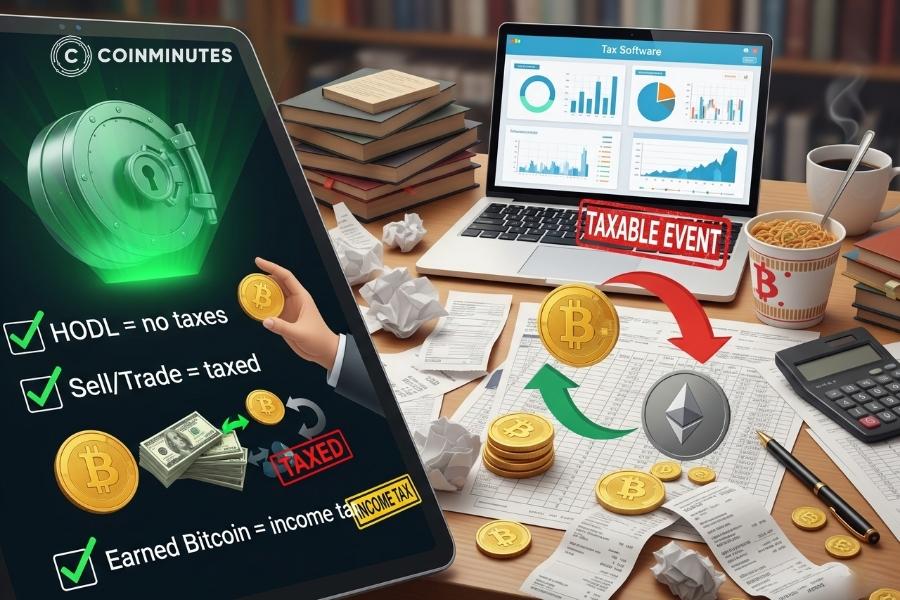
Bitcoin gains and income bring tax bills
Capital Gains
Selling Bitcoin at a higher price than your purchase means taxes apply to that gain. The exact amount owed shifts based on holding time and your income. In places like the United States, keeping Bitcoin past one year could reduce the amount of tax you have to pay.
Income
Pay received in Bitcoin needs reporting, just like regular wages. Right after someone pays you cryptocurrency valued at five hundred dollars for work, tax rules kick in using that day's rate. Pulling new coins out of the network via mining counts as income too.
Crypto-to-Crypto Trades
Changing one digital coin for another? That usually counts as a taxable event, no money changing hands needed. People rarely see it coming, since it feels more like rearranging files than selling something. Surprising how often that trips someone up.
Record-Keeping Challenges
Finding every scrap? That’s worse than chasing fog. Each sliver of Bitcoin carries baggage - its birthplace, price tag, movement date. Officials want the exact receipts for each cent. Out came a soft chuckle when I passed the jumbled log to her. She said "creative," which really meant beyond fixing.
A tool like CoinTracker or Koinly takes care of tangled transaction records on its own. Straight from your wallet or exchange, information flows in - no typing needed. TaxBit moves the same way, quietly doing the heavy part. The peace of mind alone is worth the cost spent.
Keeping Bitcoin Safe
Built on trust, Bitcoin's core code stays untouched by hackers - yet everything around it? Full of weak spots.
What Could Go Wrong? Common Bitcoin Security Risks
Exchange problems
One moment everything works fine, next thing you know the platform vanishes. Back then, Mt. Gox handled most global Bitcoin trades - luckily my share there was small. Trouble hit hard when thieves made off with huge stacks of coins during 2014. Page after page showed errors, so I kept reloading, thinking maybe it would fix itself. That hope faded fast.
Just a few years back, QuadrigaCX fell apart after its creator passed away suddenly - leaving the key to 190 million dollars locked away forever. That mess made one thing clear: leaving real money on trading platforms is playing with fire.
Fake websites and emails
A single letter made me pause - my finger hovered over the mouse, seconds from logging into what looked like Coinbase. Three times now, fake pages have stopped my breath mid-click. Just a tiny glitch in the web address gave it away.
Malicious software
These tools often go after cryptocurrency, grabbing your secret codes or swapping destination addresses while you’re pasting. That’s why I make sure my computer stays clear, pulling apps only from trusted online sources.
Social engineering
Scammers are masters of manipulation. Legitimate companies do not request secret access codes. Not once. Never.
Lost access
What if your own memory fails you? That happens a lot with Bitcoin. Keys vanish - maybe tucked away somewhere forgotten. A notebook gets tossed. A hard drive stops working. People stare at balances they cannot touch. It was there yesterday. Now it is gone. All because one small phrase disappeared.
How to Store Bitcoin Safely
A bit of caution goes further than knowing every technical detail. Our security team at CoinMinutes has developed a simple checklist we recommend to all readers:
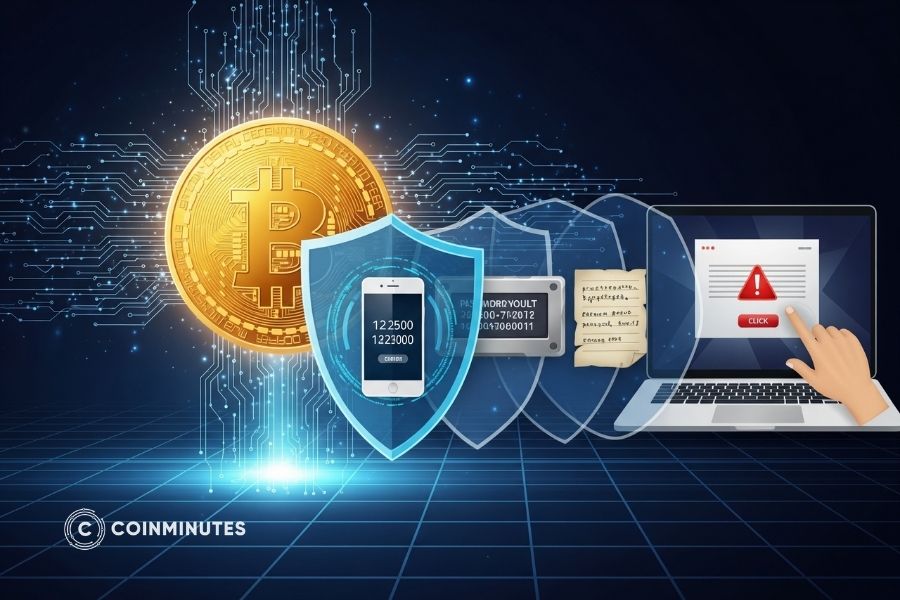
Layered steps keep your Bitcoin secure
That night at 3 AM, a login popped up from Russia - my Coinbase account nearly opened by someone else. Now, I use Google Authenticator all the time.
These days I care about having separate passwords. A tool named Bitwarden generate messy codes such as "x8$kL!pQ@vT7" for every site. Remembering any password feels impossible now, though that's probably for the best.
Your recovery phrase holds it all together. Put them on paper - keep that paper safe, never saved online. Spread extra copies across separate spots you can reach.
Now here’s another thing I do - anything crypto-related gets its own dedicated email. It puts a small but solid gap between my everyday digital routines and anything tied to cryptocurrencies like Bitcoin.
Watch out for any message claiming to be about your digital money accounts. Stop clicking anything in an email when it comes to cryptocurrency matters. When a company like Coinbase says there’s a “critical problem,” I go straight to the site by typing it myself or opening a saved page instead.
Turns out, those pesky alerts you keep swiping away actually matter. Get around to updating when they show up again. Most of the time, they can fix security holes that hackers exploit.
Start small before making larger transactions. Five bucks’ worth goes first, just to check if things work. Sure, two fees add up instead of one. Still, knowing everything’s correct? That calm feeling covers the cost.
Spreading out where you store crypto helps when trouble hits. If one platform fails, others might still be safe.
Is Bitcoin For You?
Not everybody goes for Bitcoin. A few of my sharpest pals decided against touching it at all, and I respect their call.
Truth is, most people skip checking their finances first. My brother once brought up Bitcoin, excited to jump in - turned out he had zero saved for emergencies. So I said wait until you’ve got half a year of bills covered. That kind of risk needs patience. Sudden drops happen often here. Only money that won’t cause stress later belongs in such bets. Let time do its work instead.
Fumbling with tech? That’s fine. I began clueless myself. Willingness to try new things matters most. If technology frustrates you in general, lean on someone calm who explains slowly - or stick with more traditional investments.
Why CoinMinutes Exists and Why It Could Matter to You
CoinMinutes was born out of our founder’s own expensive mistakes and weird chart obsession. Fancy? Not us - we're definitely not Bloomberg. It started small: just some guys obsessed with analyzing crypto data.
A fresh take each week, much like what you just read - delivered regularly:
-
Fresh market updates (I write these usually half-caffeinated at 6am)
-
Follow the cash flow
-
When the crowd starts cheering nonsense, that is when I pause to scan for FOMO
-
Security warnings
-
Peering into ventures still under the radar.
If you've read this far, you're probably the kind of person who'd enjoy our slightly unhinged but hopefully useful takes.
You can visit https://coinminutes.com/ if it feels right. Or skip it - totally up to you, seriously. Those Friday emails we send though? They cost nothing. And they tend to land well. Might be worth a glance, who knows. Could cross paths online sometime.
Frequently asked questions
My uncle Ted (the accountant) corners me at EVERY family dinner with his "Bitcoin is a Ponzi scheme" speech. It's become a drinking game with my siblings now. And honestly, back in 2013, I wondered the same thing.
Here's the difference: Ponzi schemes need someone running the show who pays early investors using new investors' money. When Bernie Madoff went to jail, his whole scheme collapsed.
Bitcoin doesn't have a CEO or company that can disappear with your money. There's no central account where all the Bitcoin sits. It's just code running on thousands of computers worldwide, with all transactions visible to everyone.
That said, there ARE plenty of crypto scams out there. Just because Bitcoin itself isn't a Ponzi doesn't mean the crypto space isn't filled with many frauds. The rule remains: if returns sound too good to be true, they probably are, even in crypto.
Easier than you might think! You can sell on the same exchanges where you buy and transfer the money to your bank. Some people use peer-to-peer services to sell directly to other individuals, sometimes at better rates. Just remember that the tax man considers selling a taxable event, so keep.records.of.everything.
If I could reliably answer that, I'd be writing this from a yacht, not my kitchen table with a cat trying to sit on my keyboard (seriously, Mochi, get down).
Nobody - including me - can predict short-term price movements worth a d*mn. Instead of trying to time entries, I just buy a fixed amount monthly. Some months I feel like a genius, others I feel like an idiot, but over time it's worked out.
When all Bitcoin is mined (expected around 2140), miners will earn entirely from transaction fees. This model has worked for other mature cryptocurrencies, and Bitcoin's value may increase due to its absolute scarcity.
 English
English
 Vietnamese
Vietnamese



